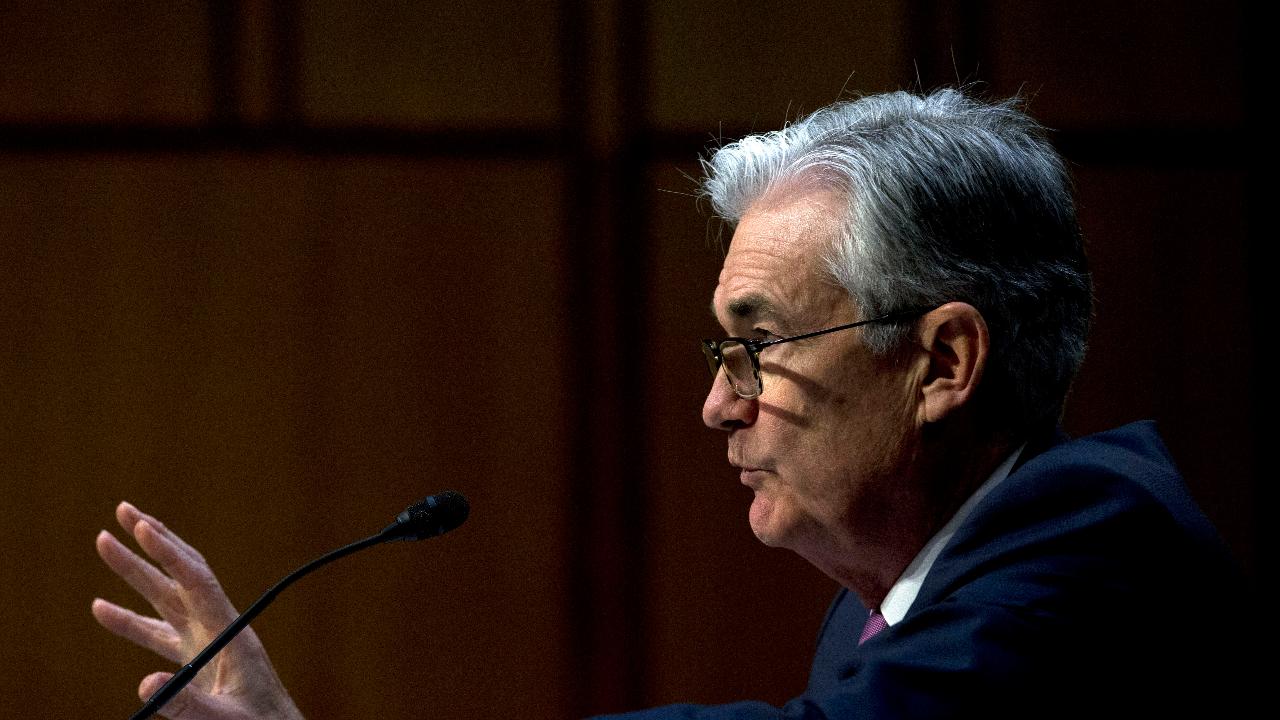Fed's Powell suggests Congress may need to do more to support unemployed Americans
There may be a 'significant' chunk of Americans who are unemployed, even after the economy recovers, Powell said
Federal Reserve Chairman Jerome Powell echoed a previous sentiment on Wednesday that Congress and the White House may need to act further to support Americans who lost their jobs as a result of the coronavirus-induced recession.
CONGRESS HAS FUNNELED TRILLIONS TO CORONAVIRUS RELIEF. WHERE IS THAT MONEY GOING?
"We're doing a fair job of getting through these first few months," Powell said during a press conference following central bankers' two-day meeting. "The question is, however, what about people who can't go back to work? And that could be many millions of people. They're going to need possibly, probably, further support. It's possible that we will need to do more and it's possible that Congress will need to do more."
The central bank chief did not specify which policy measures should be considered.
He's warned there could be a "significant chunk" of Americans who remain on the unemployment payroll, even as the economy starts to bounce back from the outbreak of the virus and subsequent lockdown.
FED'S POWELL WARNS 'SIGNIFICANT' NUMBER OF AMERICANS COULD REMAIN UNEMPLOYED AFTER VIRUS RECOVERY
"This is the biggest economic shock in the U.S., and in the world really, in living memory," Powell said. "We went from the lowest level of unemployment level in 50 years to the highest level in 90 years, and we did it in two months. Extraordinary. Appropriately, the response from fiscal authorities has been large, forceful and very quick by these standards of these things."
So far, Congress has passed three massive stimulus packages totaling close to $3 trillion to blunt the economic pain from the virus outbreak. Democrats and Republicans largely agree that another round of aid is necessary, but are divided on what specific measures need to be included.
WHITE HOUSE MULLS MORE VIRUS RELIEF: HERE'S WHAT IT COULD INCLUDE
The Fed has also taken a range of extraordinary actions to support the economy, including slashing interest rates to near-zero, purchasing an unlimited amount of Treasurys (a practice known as quantitative easing) and launching crisis-era lending facilities to ensure that credit flows to households and businesses. It also said Wednesday it will increase its purchases of Treasury and mortgage-backed securities "at least at the current pace to sustain smooth market functioning."
During their Wednesday meeting, Fed policymakers voted unanimously to hold interest rates near zero — and signaled they'll remain at that level until 2022 — and released their first economic forecast this year.
The central bankers projected a lengthy recovery from the coronavirus recession. They said they expect unemployment to end 2020 at 9.3 percent and remain elevated for years, eventually falling to 5.5 percent in 2022. That's still well above the pre-crisis level of 3.5 percent.
GET FOX BUSINESS ON THE GO BY CLICKING HERE




















